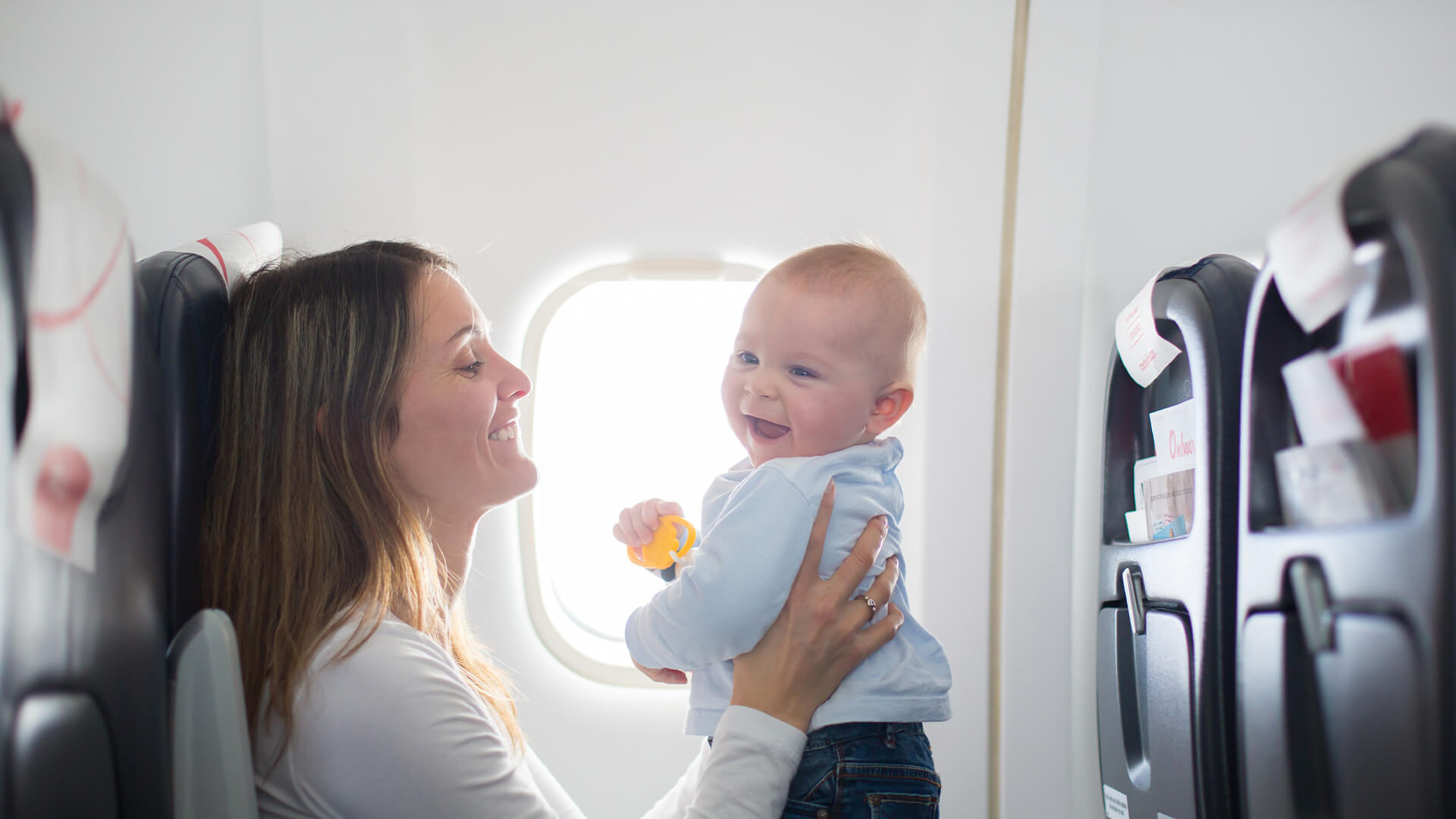
Your first family holiday is a chance to relax and have fun together. You’ll make memories that will last for a lifetime, so make sure you’re prepared to make the most of it.
To help you out, UK baby brand Nuby have created a guide to going on holiday with your baby. Take a look at these top tips to make your first holiday with your baby one to remember!
Baby passport
First of all, if you’re travelling abroad, you will need to buy your little one a passport. Yes – even babies need passports! You can apply online through the government website for £49, providing you have a digital photo and the necessary paperwork.
Travel insurance
Travel insurance can come in handy when you’re going on holiday. Whether your baby becomes poorly or you lose your pushchair, insurance will make sure you’re able to deal with the situation without any hassle. Travel insurance can cover multiple areas of concern, from lost luggage to cancelled planes.
Vaccinations
To make sure your baby is safe and protected on your holiday, you might need to arrange a vaccination or two. This also changes depending on where you’re travelling. Some areas of Central America and the Caribbean, for example, require a cholera vaccination.
Destinations
Most countries are now accepting tourists, although there may be some restrictions. In Spain, you need to show valid proof of being fully vaccinated within 270 days prior to arriving in Spain, a negative test, or recovery from COVID-19 within the last six months*. Children under 12 are exempt. It’s always best to check before you book and again a few days before you travel – rules can change quickly! (*Correct at the time of writing – May 2022)
If you’re not fully vaccinated, there are still lots of places you can go and explore. If crystal blue waters and white sands are your thing, Greece and Cyprus are willing to let you enter the country.
Babies and aeroplanes
So what happens once you’re on the aeroplane? Here are some of the things you need to think about before soaring high.
Age restriction
If you’re travelling with a newborn baby, remember to check the rules and regulations of your chosen airline. TUI, for example, only allows babies over two weeks old to fly on an aeroplane. This can change though, so it’s always worth checking before you book.
Seating
If your baby is under the age of two, they are normally able to sit on your lap for the flight. You can also book a separate chair and bring a car seat. Remember to tell your airline in advance of travelling, as some have rules around the size of these seats – for example, TUI doesn’t accept car seats wider than 40.5cm. You might also be able to ask for a free bassinet for your baby to sleep in.
Baggage
Unless they have their own seat, any baby baggage will count towards your allowance. This includes a baby changing bag, which should be full of baby and newborn essentials, from bottled milk to nappies and a spare change of clothing. It’s good to know, however, that pushchairs and prams usually travel on planes free of charge.
There are lots of other things you might want to pack in your carry-on bag. If your baby is old enough to snack on solids or anything other than milk, a couple of rusks and some fruit pouches will always help. A spare dummy and some comforting blankets are a good idea too, in order to keep them calm during the flight.
Plane hacks
No matter how many neck cushions or blankets you bring, travelling on an aeroplane can be uncomfortable. The change in air pressure can trigger ear pain in people of all ages. To help your little one gets through the flight, try feeding during lift off and take off. You might also want to bring some noise cancelling headphones, as it can get quite noisy.
Holiday accommodation
Whether you’re leaning more towards a hotel or renting an apartment, these are some of the things to consider before you book any accommodation.
Lifts and accessibility
If you’ve ever tried to carry a pushchair or a pram up multiple flights of stairs, you’ll know that this can be exhausting. Be sure to check whether your accommodation has a lift or not.
Milk and food
Getting your baby to sleep can be a challenge at the best of times, especially when you’re in another country with a different time zone. This means you might need to prepare a midnight snack in your room, so don’t forget to see if you have a microwave or a kettle. If not, you might want to invest in a portable bottle maker for your baby.
Cots and cribs
More often than not, you can hire a cot or crib from your chosen accommodation. This is ideal if you don’t have enough room to pack a Moses basket in your suitcase.
Prams and pushchairs
If you don’t want to travel with your own pushchair or pram, you can usually hire these wherever you choose to go on holiday. It can help if you’re trying to travel with as few possessions as possible, but considering these normally travel on planes for free, you’ll probably want to bring your own.
With these preparations in place, you’ll be set for a smooth journey with the little one in tow. Remember to take lots of photos of your baby’s first holiday!



















